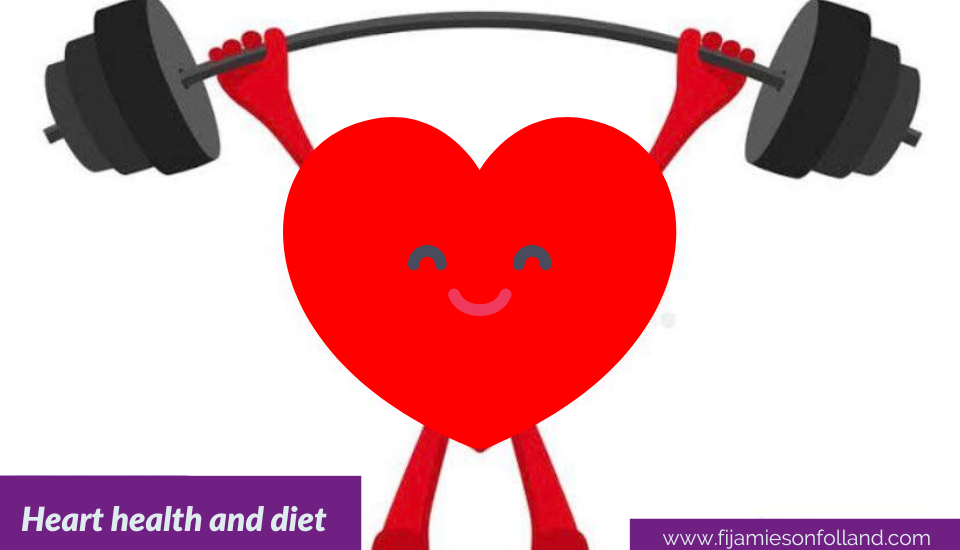The best diet for a healthy heart
Heart disease is the leading cause of death globally, and it’s important to understand the role that diet plays in our heart health. Eating a healthy diet can help reduce our risk of developing heart disease, and there are specific foods that can promote better heart health. This article will discuss the potential benefits of a heart-healthy diet and provide tips for incorporating heart-healthy foods into our meals.
What are the potential benefits of a heart healthy diet?
There are a number of benefits to eating a diet that supports optimal heart health and as I list them you’ll see a number of these relate to a reported reduction in risk for heart related issues. For example:
1. Reduced risk of heart disease: Eating a heart-healthy diet can help reduce our risk of developing heart disease, the leading cause of death in the United States and one of the top around the world.
2. Reduced risk of stroke: Eating a heart-healthy diet can help reduce our risk of having a stroke.
3. Reduced risk of high blood pressure: Eating a heart-healthy diet can help keep our blood pressure in check, reducing the risk of hypertension.
4. Reduced risk of Type 2 Diabetes: Eating a heart-healthy diet can help lower our risk of developing Type 2 diabetes.
5. Improved cholesterol levels: Eating a heart-healthy diet can help reduce our bad cholesterol and increase our good cholesterol levels.
6. Weight Loss: Eating a heart-healthy diet can help us lose weight and maintain a healthy weight.
7. More Energy: Eating a heart-healthy diet can help us feel more energetic throughout the day.
Pretty cool in my book!
Who wouldn’t want to maintain a healthy weight, have more energy and reduce their risk of heart disease?
Ok so what is a healthy diet for our heart?
A heart-healthy diet includes a variety of nutrient-rich foods, including plenty of fruits and vegetables, plant-based and lean proteins, non dairy or low-fat dairy, whole grains and healthy fats. It’s ideally also low in sodium, saturated fats, trans fats, and added sugars.
Examples of heart-healthy foods include:
-Leafy greens
-Beans and legumes
-Avocado
-Nuts and seeds
-Ground flaxseed
-Extra-virgin olive oil
-Berries
-Salmon
-Whole-grain breads and cereals, oatmeal
Are there any herbs that are healthy for the heart?
Yes, herbs can be very healthy for our heart. Herbs such as garlic, ginger, turmeric, cinnamon, and oregano are known for their antioxidant, anti-inflammatory, and cholesterol-lowering properties, which can help to reduce our risk of heart disease. And Hawthorn extract helps to improve blood flow and reduce cholesterol, as well as reduce the risk of heart attack and stroke.
Additionally, consuming herbs can help to reduce our blood pressure, improve circulation, and reduce stress, all of which can be beneficial for our heart health. As always, it is important to speak with your primary health care practitioner before taking any herb to ensure it is the right choice for you.
What about juicing?
Again, yes, juicing can be healthy for our heart. Juicing can help to provide essential vitamins and minerals that can help to reduce inflammation and prevent heart disease. Juicing can also provide a boost of antioxidants that can help to protect our heart from damage. Additionally, juicing can help to reduce cholesterol levels, which can be beneficial for heart health. The only challenge I have with juicing is that it removes fibre which is important for slowing down the absorption of the sugars often present in fruit and vegetables. So bear this in mind if you decide to juice.
Do heart health supplements work?
Yes, certain high quality supplements, such as omega-3 fatty acids, can be healthy for our heart. Omega-3 fatty acids can help reduce inflammation, which can help lower our risk of heart disease. Other supplements, such as vitamins B6, B12, and folic acid, may also help reduce the risk of heart disease.
In addition, Coenzyme Q10 is an antioxidant that can help protect against cell damage and may also help lower cholesterol. Garlic has been shown to reduce cholesterol and triglyceride levels, as well as reducing the risk of blood clots.
Also, Magnesium can help to regulate blood pressure, reduce inflammation, and protect against artery damage. Folic acid can help to reduce levels of homocysteine in the body, which can be a risk factor for heart disease. Niacin helps to reduce cholesterol levels and can reduce the risk of heart disease.
As always, it is important to speak with your primary health care practitioner before taking any supplement to ensure it is the right choice for you.
Conclusion
In conclusion, and it seems obvious sharing this, that taking care of our heart is essential for a long and healthy life. Eating a balanced diet and exercising regularly are both important ways to keep our heart healthy. And supplementation plays a key role in heart health and is in my opinion a vital addition to a healthy, whole foods, balanced diet. By taking the necessary steps to ensure our heart is healthy, we can each embrace a long, fulfilling life.
If you have any questions or if you’re just looking for direction with lifestyle including diet, exercise or supplementation please feel free to reach out to me at my email address fi@fijamiesonfolland.com.
Fi Jamieson-Folland D.O., I.N.H.C., is The LifeStyle Aligner. She’s an experienced practitioner since 1992 in Europe, Asia and New Zealand as a qualified Osteopath, Integrative Nutrition Health Coach, speaker, educator, writer, certified raw vegan gluten-free chef, and Health Brand Ambassador.


